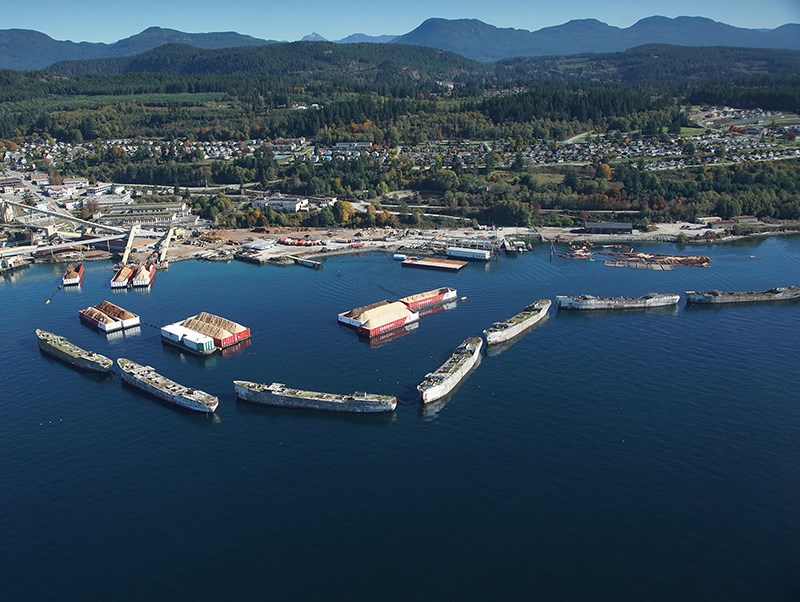Tla’amin Nation executive council has issued a letter regarding composting in Townsite, stating that the proposed facility is small-scale, green and provides a vital service. Tla’amin council wanted to respond to “inaccurate perspectives and questions on scale and process technology," and address concerns related to smell, traffic, pests and open piles.
The letter stated that today, organic materials make up close to 50 per cent of qathet region’s waste stream. Diverting these materials from the landfill and recycling them into class A compost will lower the community’s waste costs while supporting local food security, according to the council.
“Employing the latest technology, organic materials will be cooked in an odourless manner under a cover and enclosed in a building, rendering our kitchen scraps into highly prized fertilizer/soil,” the letter stated. “This fertilizer/soil will be donated to local food security initiatives and sold to residents. This is a project designed for our region alone, as such we won’t be dealing with Vancouver’s waste, or anyone else’s for that matter.”
Because delivery will only happen twice a week, truck traffic and noise will be minimal, according to Tla’amin council.
“The bottom line is that this facility will provide a much-needed service to the whole region,” the letter stated. “We are working with experienced partners and the latest technology to divert thousands of pounds of waste from the landfill. Tla’amin Nation will invest more than $1,000,000 of its own funds and grant funds into the facility for the benefit of the entire region.”
Some neighbours have expressed concerns around “citizens inundated by the nauseating odours of decomposing organic matter.”
“This will not happen with the facility proposed on our lands,” Tla’amin council stated. “The proponent is Net Zero Waste (NZW), an experienced operator with a design that has demonstrated an odour-free solution at multiple larger sites throughout BC and around the world. All processing of organics will be covered with a Gore-Tex membrane similar to the waterproof membrane in your winter coat.”
Concerned community members can visit the Cumberland landfill food/yard waste pilot facility to see how effective this design is in producing Class A compost without odour, according to Tla’amin.
“That project has a design capacity of 2,500 tonnes per year, which is significantly larger than our region’s needs, expected to commence at around 1,000 tonnes per year,” the letter stated. “Baseless and irresponsible allegations have been made comparing the facility proposed on our land to the now defunct Harvest Power facility in Richmond that processed 200,000 tonnes per year in open piles without covers or buildings. The facility on our land would process 0.5 per cent of that volume, would be under a cover and a building, and would be in compliance with the organic matter recycling regulation.”
Site zoned industrial, says Tla'amin council
The letter states that qathet Regional District (qRD) has a mandate to ensure this project is sited on appropriate industrially zoned lands.
“The site proposed by our team is zoned industrial (not residential as alleged by some) and the project would be very light industrial activity with operations only one to two days a week,” the letter stated. “This will not involve loud noises, bright lights or any visible activity due to the natural buffer of trees and grade in place.
“Of all of the potential industrial uses for the site, the proposed facility is surely one of the lowest impacts and nuisance. It certainly won’t be heard or seen over the other industrial uses nearby.”
Tla’amin council stated that it’s understandable there is some confusion about location, as this happens to fall during a transfer of jurisdiction. According to the letter, this land is owned by Tla’amin Nation and the current City of Powell River jurisdiction is temporary and expires once the conversion to treaty settlement land that is underway within the provincial government completes. This has been the intent since the city provided the consent for the conversion on September 30, 2018, according to the letter.
“To clarify: qRD has the position of decision-making for this proposal,” the letter stated. “The qRD requested proposals for solutions designed to benefit the region and all communities within it.
“The fact that the facility is located precisely at the site of first contact between Tla’amin and our neighbours is an essential part of this story. Through this partnership we can retell the story of this place in the context of partnership and mutual benefit, working together to care for our environment and preserve this place for generations to come.”




